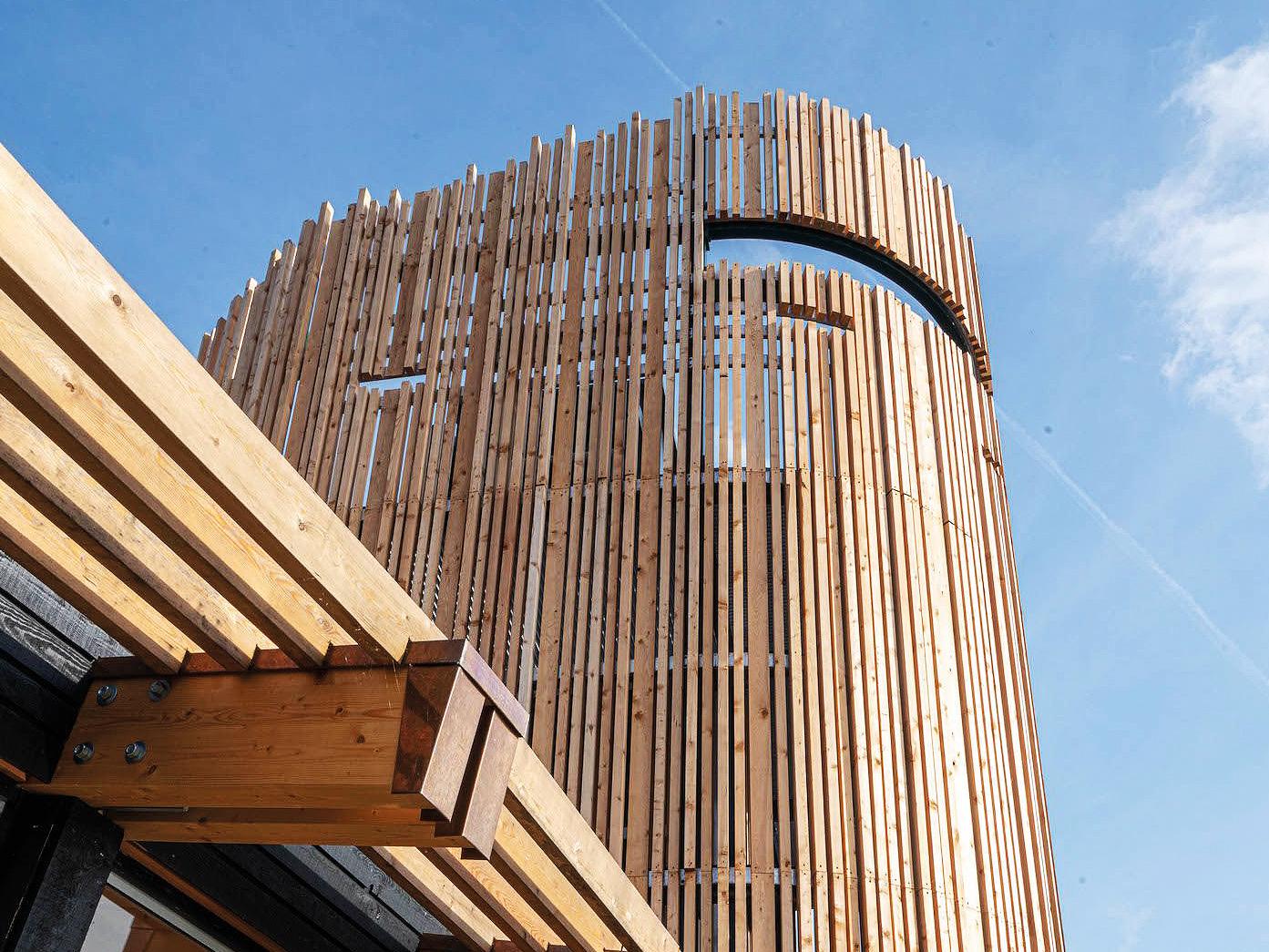
Located in the heart of the River Lee Country Park, the new Wildlife Discovery Centre utilises fully recyclable materials to reduce the building’s impact on landfill waste.
THE £700,000 development has replaced the former Bittern Information Point, which, after 30 years, had run the course of its lifespan. Set overlooking Seventy Acres Lake, the centre offers far-reaching, 360-degree views of the surrounding area from the 5m viewing tower. This allows bird watchers and nature lovers to take a closer look at the wildlife in the park, which is situated in the 26-mile-long Lee Valley Regional Park – stretching from the Thames to Hertfordshire.
Property, construction and infrastructure consultancy Perfect Circle – a company jointly owned by Pick Everard, Gleeds and AECOM – was appointed by Lee Valley Regional Park Authority through SCAPE, the public sector procurement authority, to provide project management, structural engineering, principal design, civil engineering and upfront QS costings to the project. The works were accelerated by SCAPE Consultancy, a direct award framework that drives collaboration, efficiency, time and cost savings.
As well as providing an area for the community and tourists to appreciate the wildlife and the Eurasian bittern bird – a Biodiversity Action Plan species – there is a fully accessible information point and a two[1]tier viewing area at ground level, with a separate wildlife information room. The centre is also equipped with ramps and lifts to make it accessible to all.
Fully sustainable materials were used to construct the centre – reducing its impact on landfill waste once the building reaches the end of its design life in half a century.
“The overriding ambition for the scheme was to refrain from using any concrete so the materials can be recycled when the building reaches the end of its life and to be conscious and protective of local wildlife habitats,” says Hannah Hamilton, regional partner for the south east at Perfect Circle.
All materials can be dismantled, reused and recycled; the helical piles can be unscrewed and reused, all timber elements can be chipped and used for biofuel, gabion retaining walls can be reused, and the foundations can be recycled because they aren’t composed of concrete.
The innovative facility demanded sustainable materials for sub-structure and super-structure elements to overcome difficult site constraints – the area is located on a remote site between two rivers with limited access – and Covid-19 restrictions.
The structural design, led by Pick Everard associate Jayesh Patel, incorporated off-site construction techniques – including Keller helical piles, pre-fabricated glulam beams, and spliced steel framing – to reduce manual handling risks, construction waste and improve site logistics.
“The construction programme also had to take into account bird migration patterns and nesting, with construction activities being monitored for noise to minimise disruption to the local wildlife, such as bird migration and nests,” says Hamilton.
Perfect Circle worked alongside Lee Valley Regional Park Authority, architects Andris Berzins & Associates, and contractor Carmelcrest Construction for this project, which has breathed new life into River Lee Country Park.